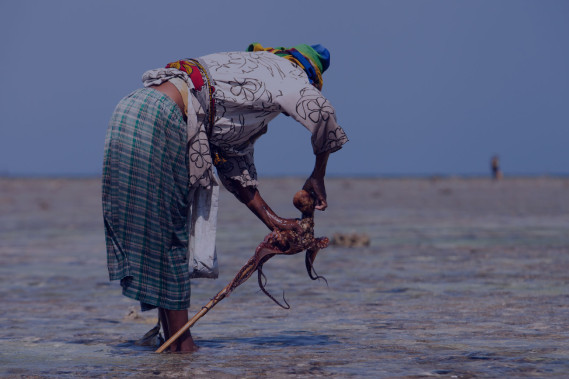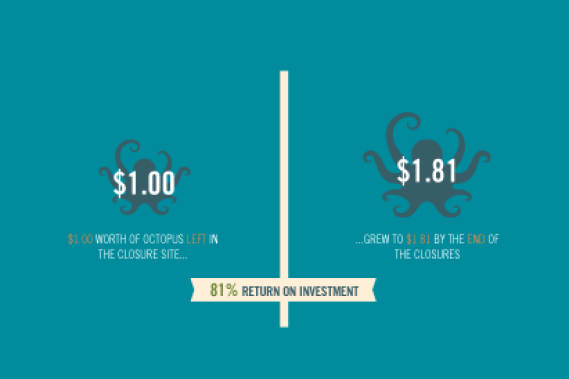This is the striking conclusion of new research published in PLOS ONE evaluating a local fisheries management regime in Madagascar, highlighting compelling economic benefits and their role in catalysing community engagement in broader marine management efforts.
↓
Marine scientists from Blue Ventures Conservation studied octopus landings in the remote southwest of the island over an eight-year period, during which villagers periodically set aside designated areas of their fishing grounds as temporary ‘closures’ to octopus fishing.
↓
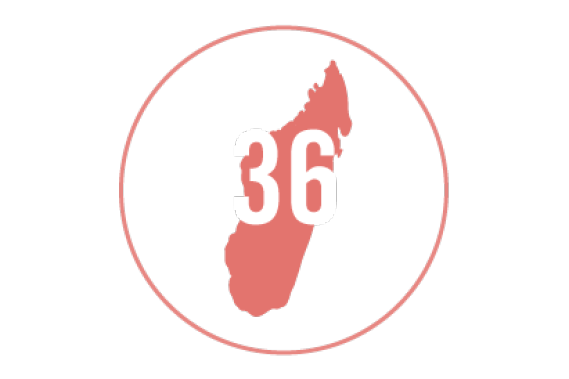
Closure sites were studied in South Western Madagascar between 2004 and 2012
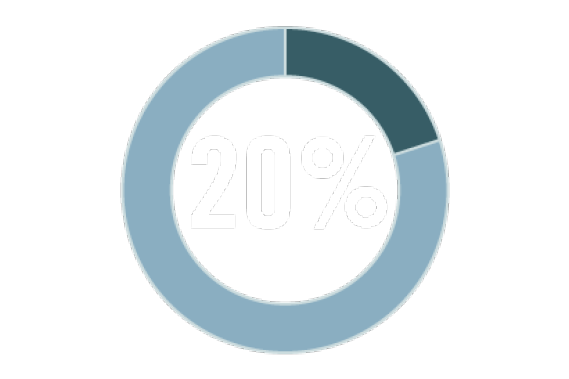
Of a village's octopus harvest area is typically closed to fishing for 2-3 months
↓
Fished by both women and men, octopus is one of the region’s most important stocks, sold on to export markets with seafood companies transporting catches from some of the Indian Ocean’s remotest villages all the way to restaurants and supermarket shelves in southern Europe.
↓
During the temporary closure period, octopus fishing in designated areas is banned by a local law established by community committees. When the closed sites are reopened to fishing, villagers share in a surge of catches, thanks to the rapid growth rates of reef octopus.
↓
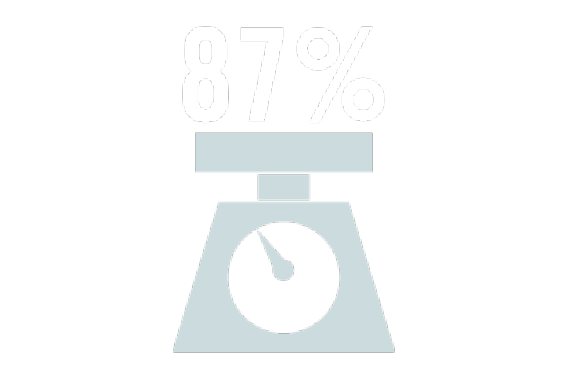
Increase in average weight of octopus landed per-fisher per-day in the 30 days before and after a closure, from 2.4kg to 4.4kg
↓
“Before we started doing octopus closures, we were only catching two or three octopus in a day, and some days we wouldn’t catch any at all… With the closures we make a small sacrifice, but we can still glean on other reefs, and after waiting we catch more octopus; the catch is good in the days after openings. I have more money for food and for my family.”
Velvetine, fisher, Andavadoaka
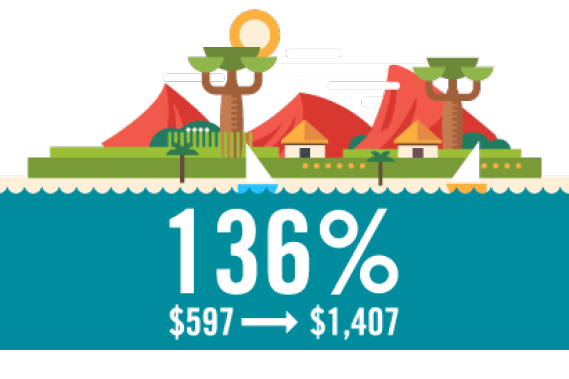
Average increase in village income from octopus fishing in the month after a closure with no significant decline in income during the closure
↓
These closures generate significant and recurring ‘pay-offs’ for coastal communities in short timeframes, which is particularly important in a country where over 90% of the population live on less than $2 per day.
↓
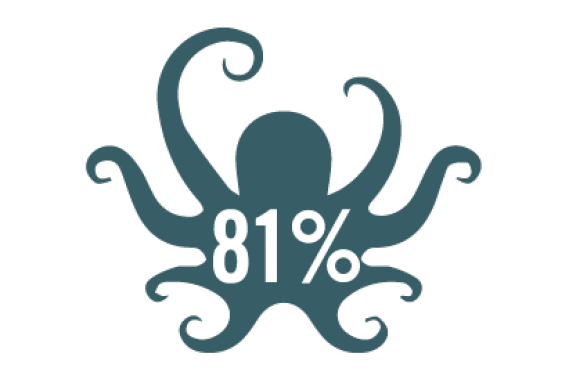
Average return on investment - i.e. $1 worth of octopus left in closure sites grew to $1.81 by the end of the closure period
↓
Having experienced the economic benefits of these closures, communities are embarking on broader marine protection efforts, establishing locally managed marine protected areas encompassing permanent reserves where all forms of fishing are prohibited.
↓
“By demonstrating that effective fisheries management can reap dividends, this model is playing a powerful role in building local support for marine conservation.”
Daniel Raberinary, Blue Ventures and the University of Toliara’s Institut Halieutique et des Sciences Marines

